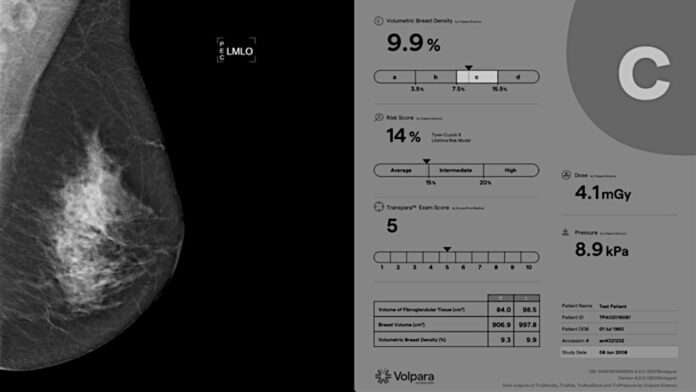
The Mercy Women’s Center has adopted Volpara Risk Pathways, a state-of-the-art software program designed to simplify risk assessment and enhance patient management for high-risk breast cancer cases.
Mercy is the first hospital in the area to offer the Volpara platform, which provides a more detailed and accurate assessment of a woman’s breast cancer risk.
Breast cancer affects one in eight women during their lifetime, underscoring the importance of not only regular mammography screenings, but also a comprehensive understanding of individual risk factors. With the new Volpara software, Mercy empowers women to take proactive steps in managing their breast health.
According to a release, the system will provide a number of benefits for patients, including:
- Personalized care – The software provides a personalized risk assessment to help women and their health care providers make informed decisions about additional care and preventative measures.
- Early detection – By identifying high-risk patients early, the software aids in the early detection of breast cancer, which is crucial for effective treatment and better outcomes.
- Convenient access – Patients can easily complete the health questionnaire at Mercy Women’s Center at the time of their mammogram visit or beforehand through their MyChart account.
Before their screening mammogram, patients will be notified about the risk assessment and encouraged to complete a health questionnaire detailing personal and family history. This information, combined with mammogram results and breast density, generates a personalized risk scorecard.
Once a patient’s risk information is collected, the new Volpara breast cancer software system at Mercy utilizes a set of risk models and clinical guidelines to accurately identify and direct high-risk patients to follow-up care, which may include genetic testing and/or additional imaging, such as ultrasound or breast MRI, to ensure that every patient receives a customized care plan based on their unique risk profile.
“Breast cancer risk assessment is a priority for Mercy in our effort to enable early detection of cancer for our patients,” said Ann Stroh, DO, medical oncologist at the Hall-Perrine Cancer Center. “Implementing the Volpara software has given us the tools to identify and manage high-risk patients, ensuring that each patient receives individualized care tailored to their specific needs.”
Mercy launched the new software in late August.
For more information about the new Volpara system, visit www.mercycare.org/breastriskassessment.




